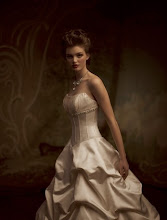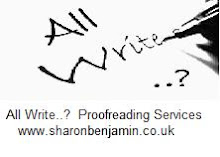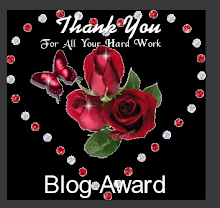
Have We Gone Overboard?
Do readers really care how many times an author uses “was?” Does passive voice…those naughty “have beens, had seen, etc., really stop anyone dead in their tracks and detract from the story? In small press, head-hopping is a horrible faux paus, punishable by instant rejection, but Nora Roberts does it with style and flair in her stories. One has to wonder why each month brings a new focus to a supposed problem in writing.
Does anyone really fling a book across the room if affect comes before cause… For example…someone jumps at a slamming door? Rules dictate that the door must slam before someone can jump. Are we that analytical in our reading?
All I know is that for years I read book after book after book, and I read for the pleasure of the story, the plot, the characters, the romance. I can’t recall EVER reading with an editorial eye until I became an author. Now, after having gone through so many editorial sessions, I can’t enjoy a book because I’m searching the content for something the author did wrong. My pet peeve this month is “to phrases.” For example… “He bent to kiss her.” In this instance, “to kiss” shows intent on his part. Why not just say, “he bent and kissed her?” Okay…does it really make any difference in the big scheme of writing? Have editors applied their own pet peeves to the ever growing list of “no nos?” Those who write regency use a lot of “to phrases,” but since I don’t write in that genre, I have no idea why, but it seems to be the norm.
Writing has become even more difficult with the inception of new rules applied by various houses. There is no consistency. Just as we have to jump through hurdles with agents, we now have to discover the nuances of each publisher when it comes to editing rules. My complaint is that sometimes when rules are so stringent, the author’s voice is lost in the mix. I don’t mind an editor pointing out problem areas and making suggestions, but I do dislike having someone try to rewrite my book in a style that isn‘t ME. We all put our own stamp on our work, and I like my books to display mine.
In closing, I want to add that editing is perhaps one of the most underappreciated jobs in publishing. It’s pretty thankless and certainly not a position that pays well. Yet, if the author and editor don’t mesh, then the manuscript is going to suffer. To my fellow authors: don’t be afraid to ask for a new editor if you can’t find a happy medium with the one assigned you. Editors are sort of like buses. There are plenty in the “garage,” and you want to get on one that’s going in the right direction.
Please leave a comment about your feelings on editing. I’m interested to know if I’m the only one who has noticed a definite changeover the years.
Oh, and since I’m not shy about promoting, I hope you’ll visit my website at http://www.gingersimpson.com and see what’s new for me. My latest two releases, Hurricane Warning (Muse it Up Publishing) Amazon and First Degree Innocence Smashwords are available now.

BLUE TICKET by Sophie Mackintosh
17 hours ago






























Margaret,
ReplyDeleteThanks for hosting me today...and I want to let everyone know that First Degree Innocence is also available for Kindle...and in print via Createspace. I can't believe I was just notified that Hurricane Warning is available on Ipad/Iphone. How cool is that?
This comment has been removed by the author.
ReplyDeleteAs an editor I can say there is a vast decline in using high school grammar in every day practice, not just in novels. It's sad really. I can't speak for different houses; but I can say I allow my clients voices to shine through their work even if that means improper English from time to time. A strong voice will only be enhanced by the tools of the language, not hindered by them.
ReplyDeleteThe rules of grammar are in place so we have a common way to logically communicate thought clearly and concisely to another.
Many well known and well paid authors lack good sentence structure, and more so, good editors. I call it the dumbing down of American literature. Do we really want to "except whatevah cums alone..." No. But you are right, there is a balance. ;)
I tell my English students (my teens) to get the story on paper and fix the grammar later. It's amazing what a little well placed sentence structure can define and emphasize.
I think part of the problem is that the "grammarians" are using a set of rules that have been copied, unchanged, from book to book to book, since 1910. These rules did in fact describe how people wrote way back then, but modern usage has changed, evolved, and in general become less strict.
ReplyDeleteFor example, "He ran, then he fell" violates the formal rules because those rules say "then" is not a conjunction. By the rules, it should be "He ran; then he fell" or "He ran, and then he fell." But nobody except the "grammar nazis" is going to call the first example an error. It is readable, understandable, and perfectly usable if you aren't hog-tied to those century-old rules.
I think it is time to revise the rules of English grammar to fit current usage, instead of insisting on sticking with the old rules just because they are there.
* Retired Teacher of English sharpens his claws*
ReplyDeleteI am the product of 8 years at a (Jesuit-run) traditional Grammar School followed by 4 years teacher training at a major UK University and 25 years in "The Blackboard Jungle".
The vast majority of national daily newspapers are raddled with inexcusable errors of grammar, syntax and spelling.
(NB. This is NOT a typo - "riddled" and "raddled" are NOT interchangeable, synonymous adjectives !! LOL)
Allow me to mention en passant one thing Margaret mentions which is a common fallacy. Margaret says in her introductory paragraph:
"Does passive voice…those naughty “have beens, had seen, etc., really stop anyone dead in their tracks" [end quote]
These verb forms are NOT "passive". They are the PLUPERFECT form of the Active verbs "to be" and "to see" respectively. Schools are largely to blame, of course. Nobody seems to study LATIN any more, and the rules regarding Passive Voice and (especially) the Past Tenses of many verbs have been ignored as a result...
My father assures me that a teacher at my primary school told him at a parents evening (about 1957, when I was 7 years old) that I was better than her at spelling ... what chance does Dearest Reader have, if this is true of the very teachers who ought to be training the next generation in the correct use of language?
I personally find spelling errors and grammatical slovenliness impossible to ignore in any piece of writing - such as "Cause and Effect" (NOT "Affect" LOL).
These things have a habit of leaping off the page and striking me forcefully between the eyes, and I have to go and lie down in a dark room, taking a large glass of Jameson's with me while I recover ... falls down gibbering, carried away by four men in white coats,,,,,,
Paul, I'll join you for the Jameson's, and then I'll loan you my cooling eye mask. It helps; really, it does. :)
ReplyDeleteAs a reader, I am more interested in the story and characters but I do notice spelling errors. Also I can pick up sentences that don't sound right to the ear. If I have to speak the sentence out loud to understand it, there's generally a problem--I'm just not sure on whose end! I think with all the texting that people do, grammar is being thrown out the window. I shudder to think what books will look like in 20 years.
ReplyDeleteI have to agree with She. It's frightful to think what injuries texting will do to our next generation. We think we are worried now about whether to use "affect" or "effect"? Oh, horrors! What dreadful changes might we see in the next 5 years from children who CAN NOT READ, let alone WRITE correctly!
ReplyDeleteMiss Mae, I never thought of that, but you're so right. Everyone is writing in shorthand these days, and even scarier...doing it while driving. Will u b my bff?
ReplyDeleteI agree with you Ginger...the editors have taken the fun out of not just reading but writing our novels. What's good for one house isn't good for another etc. It's really annoying and I know what you mean about the manuscript suffering...my latest novel...Ancestors of Fire was cut to the bare bones...I cried after the fact because by then it was too late to do anything about it...NEVER AGAIN will that happen! The book is still good but it could have been better. Its hard not to trust your editor...anyway...have a great day!
ReplyDeleteHi Ginger,
ReplyDeleteGreat post. Unless there is a glaring error - typo or spelling, it doesn't take me out of the story. I agree that it is annoying about how each different publishing house mess around with your writing muse - what is acceptable at one house isn't acceptable at another. I don't want to be the clone of another writer, and I think that is going to happen, if the publishers/editors keep forcing us to write the same way. What ever happened to just reading and enjoying a good story?
Regards
Margaret
If you have any doubt that there are some schools still teaching grammar, you can take my son's monthly grammar quiz. I think I would have failed. He's in 7th grade.
ReplyDeletecmr
Miss Not a picky Reader here-If the story moves and I'm enjoying...I'm there!
ReplyDeleteGreat post. I have to say, that so far, my author editing hasn't intruded much on my book reading. I'm glad for that. Of course, that may reflect at how bad my own editing is :-). I love my editor! She's wonderful, even if your first edits give me a heart attack (slash and burn, but makes the writing better). I'm reading a story now that I may not be able to get through, too much telling and head hopping, not enough introspect. I love the author and am thinking it's one of her earlier works (electronic with no copyright date).
ReplyDeleteBrenda Weaver...please email me at mizging at gmail dot com with your snail mail address. You're the winner of a 2011 bound calendar complete with pen. :) Congratulations...Spencer drew your name.
ReplyDeleteGood subject, Ginger. Since we've been crit partners before, you know how hard I've tried to learn the 'rules' of writing. I've wanted to make my story perfect. I've been published with many small presses, and my latest publisher highlighted EVERY DAMN was and were words to have me fix them because they were NOT allowed. Oh good grief!!
ReplyDeleteThen I found a bigger publisher with my Christian stories. My editor actually was educated in her field - not another writer who thought to make more money editing. Anyway, she told me that I was trying too hard. I'm a good story teller, but I try too hard to follow these so-called rules. So... just write it. Short, sweet, to the point. Funny, isn't it?
~Marie~
this is a funny moment. i'm reading this about too much editing and wrote a blog about semicolon usage just yesterday, so here i sit watching Lie To Me and editing when they explained the usage of a semicolon--correctly--but used an example of that correct usage with a conjunction. oh, yeah, being editing and editing does change the way you read things. oh, i read them, on captions. great blog, Ginger.
ReplyDeleteHmm, I posted yesterday but it either didn't take, or sumthin. lol.
ReplyDeleteWhen I sink into a good story, I don't count the was, the it, the passive sentences. I'm lost in the book. So, no, I don't think it matters--just my opinion.
I have read biggie authors--as most of you have done--and when I've gone back after enjoying the book,out of curiosity, oh my, I often wonder why we can't get away with all the "ly" words, or the "it" or the "was" or changing POV in the middle of a paragraph.
I think readers want a good story, period. I can't see them with a magnifying glass counting overused words. IMHO.
Hm, thought I posted earlier - guess it was gobbled by Google...
ReplyDeleteI do think some of the editing is going too far, as with the jumping as the door slams example. However, I think more often, it's the other way and editors are not careful enough. I've seen so many typos and repetitions (apparently encouraged by publishers, which leaves me shaking my head), and also, cases where words are used incorrectly. A word that sounds similar to the right word is not close enough and anyone editing should catch that.
I absolutely disagree with altering (dumbing down) English to fit today's society, just as I would oppose dumbing down math to make it easier on those of us who aren't proficient in it. You can't lower everything to fit the least proficient. That only takes away from everyone. You teach up, not down. I think that doesn't happen enough anymore.
I don't read Nora specifically because of the head-hopping. It drives me crazy. Of course, that's personal preference. I enjoy Mark Twain's omniscient viewpoint, but I think authors don't always understand the difference.
Still, personal style matters, and few classic novels follow all the rules editors/publishers put out these days. They were, though, well-written, intelligent, and comprehensible. The line between "correct" and "well-written" can be hard to determine.
Nice article Ginger - I get what you mean about editing as you read - once an author, I find I search for a book that I can read that doesn't need any. It's surprising how many 'as' words get in some of those romances. Congratulations on your books - I wish you much success
ReplyDeleteThanks to those who posted after I drew names. I'm sorry I didn't wait longer, but I'm sure Brenda is happy. : I hope I didn't offend any editors out there because chances are I might be working with one of you and I don't need to start off on a bad foot. :) Editing, to me is like learning to use an ATM at one store then going to another and using a totally different one. A little consistency would be nice for a change.
ReplyDeleteNice post and great comments. I especially like your last comment, Ginger, a little consistency among the new small presses focusing on e-books would be nice. And we need to stop listening to writers who heard a tip somewhere about usage and thought it was cast in bronze - such as the use of "was". Poor little maligned word. LOL Also, people need to learn how to be editors, not just declare themselves as an editor.
ReplyDeleteOh, I went through my first edit. I cried. It was hard. I got through it. I love writing so I keep moving on. But I'll a little nervous at sending my next MS out. Not only will I have to worry if I used the right conjunction, but I'll have to bend to house rules. Which as you know can be different at each publishing house.
ReplyDeleteJanice~
Posting a little late here, but this is something I feel strongly about. I tend to think the opposite, Ginger - the editing's become slack. The errors in some published stories make me cringe, and I've heard others say the same.
ReplyDeleteA great editor will help bring your story to a higher level. I've been very lucky to work with some editors who made me "dig deeper" and really improved the story. Other editors seem not to care a lick whether the grammar's correct, or if there are inconsistencies, or even a plot hole. For me, it's all about making the story better, and I appreciate an editor whose goal is the same.
After all, they're getting a cut of each sale, so they should put their hearts and souls into the story too, don't you think? :)
Cate,
ReplyDeleteI appreciate a good editor too, because I want my book to shine. Unfortunately most of the editors with small press are other authors who have learned what they know from the inexperienced editors before them. New authors trust that their editor knows the rules and some follow blindly.
Yes, there are some polished professionals in the mix, and those are the ones I want handling my books. I edited for a short time and when the author wouldn't heed any of the suggestions I knew to be true, I bowed out. I wasn't going to put my name on a book I couldn't be proud of. I expect my editors to feel the same. My success is a true reflection of the editor.